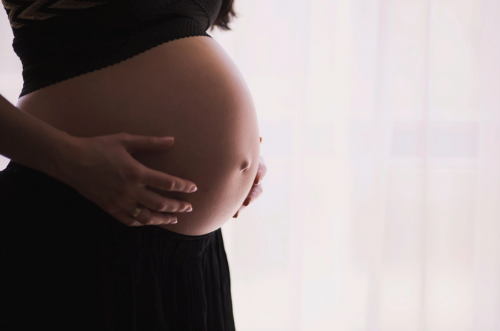Can Hidradenitis Suppurativa Affect Pregnancy?
August 30, 2021
Noreen Mohsin, University of Miami Miller School of Medicine
Paper Citation:
Sakya, S. M., Hallan, D. R., Maczuga, S. A., & Kirby, J. S.. Outcomes of Pregnancy and Childbirth in Women with Hidradenitis Suppurativa. Journal of the American Academy of Dermatology. 2021, in press.
Few studies have looked at how HS may influence pregnancy.
Hidradenitis suppurativa (HS) is a skin condition that usually begins around puberty and may get worse during pregnancy. One study showed that well over half of women with HS experienced worsening of symptoms during pregnancy and in the months after giving birth. Research on how HS affects pregnancy is limited, which is what led researchers at Penn State College of Medicine to perform a study that compared pregnancy outcomes in patients with and without HS.
Researchers looked at data from nearly 1000 women with HS.
This study included pregnant women between the ages of 12 to 40 who had given birth between January 2015 to December 2017. A total of 998 pregnant women with HS were included in the study and compared to 5,065 women without HS.
Pregnancy differences are different for women with HS.
Pregnant women with HS were less likely to have a vaginal birth and more likely to have a C-section (surgical delivery) to deliver their baby, compared to women without HS. Women with HS were also more likely to decide to have an elective termination of their pregnancy than women without HS. Lastly, the study found that women with HS were more likely to have pregnancy-related high blood pressure (hypertension), compared to women without HS.
Pregnant women with HS should be closely followed by their physician.
This study showed that pregnant women with HS may be at a higher risk for other conditions that can go along with pregnancy, like high blood pressure. More research is needed to figure out if improved control of HS inflammation can influence if pregnant women get high blood pressure, need C-section versus a vaginal delivery, and other outcomes for women with HS and their children.
Photo credit: Pexels.com


